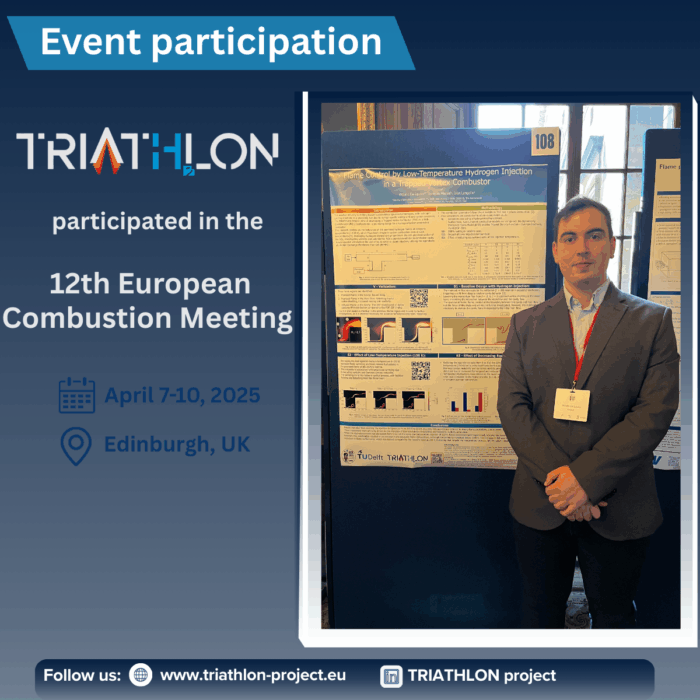The TRIATHLON project is thrilled to share its recent participation in the 12th European Combustion Meeting (ECM 2025), held in Edinburgh, UK, from April 7th to 10th. This prestigious event brought together experts in combustion science from around the world, providing an excellent platform for discussing cutting-edge research in sustainable combustion technologies.
On April 8th, the TRIATHLON project had the opportunity present its latest research during Session 2: Low Emission Combustion Technologies. The poster presentation, titled “Flame Control by Low-Temperature Hydrogen Injection in a Trapped Vortex Combustor”, showcased the work in the field of low-emission hydrogen combustion.
The presentation focused on research conducted by Vittorio De Lauso and Ivan Langella from Delft University of Technology, and Lorenzo Mazzei from Ergon Research. Their work investigated the behaviour of rich premixed hydrogen flames at cryogenic temperatures (~150 K). Remarkably, the study demonstrated that hydrogen flames could sustain combustion even in extreme cold. This ability is leveraged through hydrogen’s thermal sink properties, which enhance stability within the rich premixed section of a TVC (Trapped Vortex Combustor), operated in RQL (Rich-Quench-Lean) mode.
This innovative research aligns with the TRIATHLON project’s mission to overcome key challenges in scaling hydrogen powertrain technology. By exploring low-temperature hydrogen injection, the work aims to enhance the stability of hydrogen flames, contributing to more efficient and cleaner energy systems. Moreover, the findings hold significant promise in reducing NOx emissions, an important step in achieving the environmental goals of next-generation combustion technologies.
The opportunity to present at ECM 2025 allowed the TRIATHLON team to connect with combustion experts from across the globe, fostering knowledge exchange. These discussions not only enhanced the project’s understanding but also provided fresh perspectives to continue pushing the boundaries of clean and efficient combustion.
A heartfelt thank you to Vittorio, Ivan, and Lorenzo for their exceptional contributions to this research.

